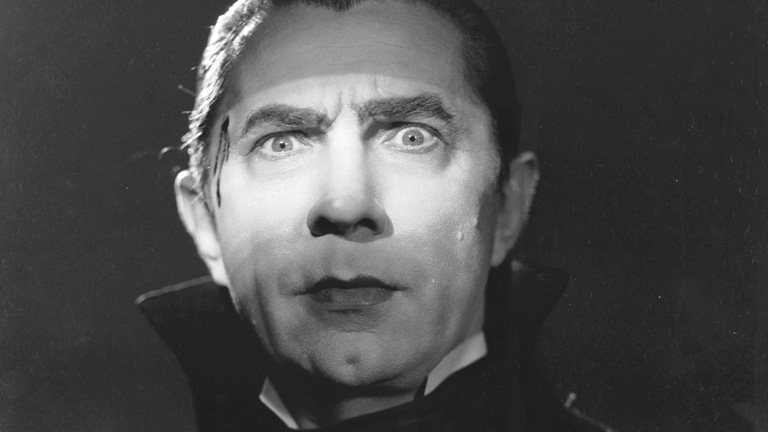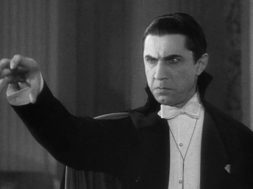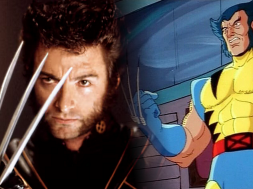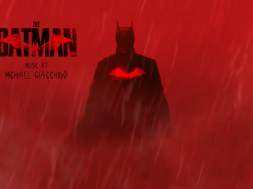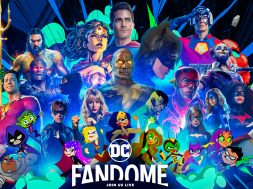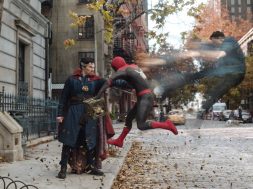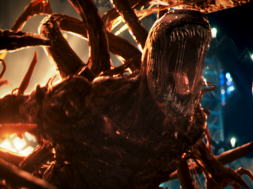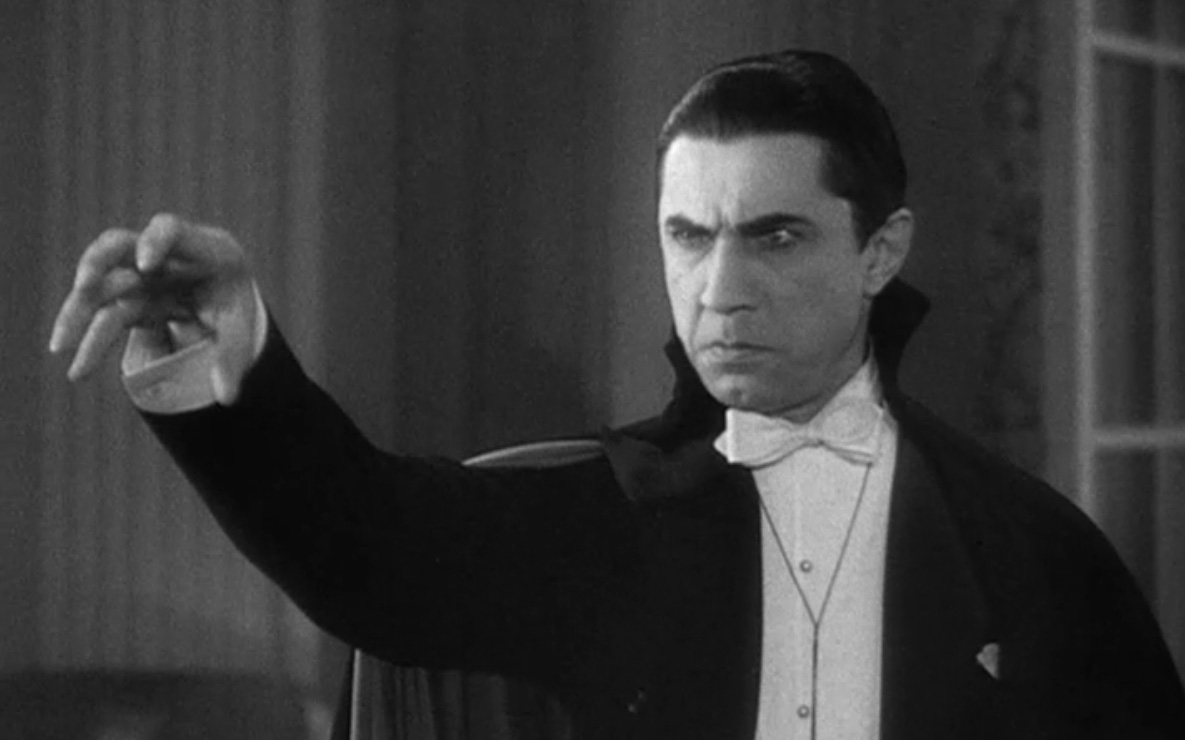
Please note this article contains mature content and discusses themes of sexual violence.
It was announced during the week that Steven Moffat and Mark Gatiss are reuniting to write an adaptation of Dracula. In an ironic twist, I find myself writing this article while recovering from a nasty case of sunburn. Funnily enough, even the Count has the sense to wear a sunhat when he’s forced to travel in daylight (chapter 24 if you’re interested). I’m a big fan of vampire movies; good and bad. From Underworld to Blacula, if there’s a vampire in it I’ve probably watched it. On top of this one of the final papers of my degree was about international politics in Dracula. As a result, I’ve read Bram Stoker’s relatively short novel far more times than I care to mention. As well as this I’ve seen a number of film and television adaptations.
It is therefore with mixed feelings that I heard the news about Stephen Moffat and Mark Gatiss’ planned Dracula television series.
I want to begin by reminding readers this is nothing more than an opinion piece. Note that I don’t want to see this series prevented and I certainly don’t want to discourage you from watching it. I just have a great amount of interest in this particular book and believe in being critical of our favourite creators. My aim is address whether the clichés that often pop up with Dracula and whether Moffat and Gatiss are prepared to tackle these.
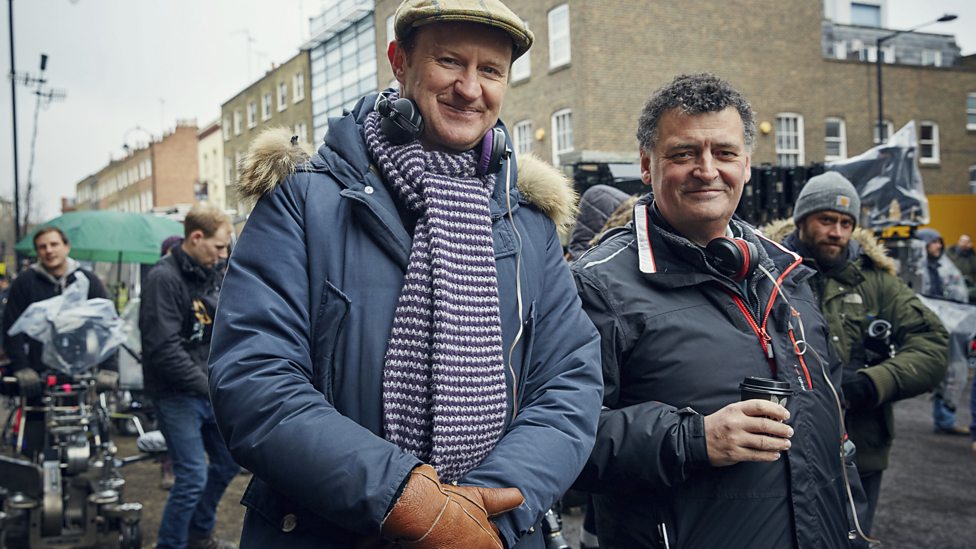
Words, Fangs and Blood
I’ll start with the positives. I am incredibly excited to see anything horror-related by Mark Gatiss. His horror credentials are well-known, writing and presenting the documentary series A History of Horror. Additionally, his love of the grotesque and the horrific can be clearly seen across The League of Gentleman. If Mark Gatiss is eyeing the role of Dracula for himself I’ll definitely have to watch. He played the 3000 year old Mr. Snow in Toby Whitehouse’s Being Human. Despite coming in during the show’s relatively tame fourth season for two episodes, Gatiss stands out massively. The quiet power, confidence and savagery of Mr. Snow is close to matching Lugosi himself in intensity.
Additionally I’m interested to see Moffat’s plot and dialogue. In reality, the Count only appears on three occasions and speaks for longer than a sentence twice. His menace largely comes from keeping in the shadows. For all my problems with Moffat’s way of constructing arcs, I must acknowledge his skill at building tension. The way he built tension with the Silence lasted several seasons without revealing much, to a conclusion I found a bit lackluster. However, I think what was a weakness in sci-fi could be a great strength for him in horror. Building up the Count as the demonic king of the vampires, the non-beating heart of the whole story, seems like the ideal job for Moffat.

Dialogue is another potential strength. Anyone who has read Dracula will probably be at a loss to remember any significant quotes. Apart from “Children of the night, what music they make!” the Count doesn’t have many memorable lines. All of Bela Lugosi’s best lines were the work of Garrett Fort’s screenplay, giving the Count a formidable yet droll persona. Moffat’s specialty in villains from Moriarty to Missy comes from alternating mirth and menace. While I wouldn’t want the Count to be quite as humorous as these characters, Moffat nevertheless shows a pretty decent knack for memorable villain lines.
Done To Death
Now I must turn to things I’m not so sure about. I ought to clarify I’d be worried about anyone attempting to adapt Dracula today. As I explained in my Bela Lugosi profile, I can’t help but feel like Dracula adaptations have lost their way since the 90s. Francis Ford Coppola’s 1992 film starring Gary Oldman contained a wonderful cast and stunning visuals. However, the film has had the unfortunate side effect of setting the tone of what I’ll call the ‘Sexy Count’. The idea of vampires as seductive isn’t new. In fact, some would argue that Dracula’s big achievement was changing the vampire from the rotting corpse to dashing gentleman. But I feel like most modern adaptations take an extra step by making the seductive side of the Count less of a predatory technique and more of a positive character trait. It can’t just be that he’s a literal blood sucking fiend who uses glamour and beauty to lure his prey. It must be because beneath his scary exterior the count is just a misunderstood cinnamon roll.
Dracula Untold takes this to rather extreme lengths in their origin story, deciding not just to try redeeming the vampire Dracula, but also his human alter ego Vlad Tepes. I know the Wicked treatment is getting increasingly possible and there’s value to telling the villain’s side of the story, but I’m sorry: I have to draw the line at Vlad the Impaler. The idea that anyone thought ‘sometimes you just need to impale people’ was a good starting point for a script still astounds me. Nevertheless, recent writers seem to have a fetish for the misunderstood, tortured and brooding Dracula. This risks removing the menace and the mystery of the character entirely.

The Jonathan Rhys Meyers adaptation follows Coppola in showing the Count as just looking for the reincarnation of his lady love. This is usually represented by Mina Murray.
The relationship between the two is rendered a complicated by the fact that one of the first things the Count does in England is to brutally attack Mina’s best friend Lucy. While there’s nothing explicitly sexual about the attack, academics such as Maurice Richardson and Christopher Craft see the bite of a vampire as a heavy metaphor for sex. This, combined with the forceful nature of Lucy’s attack gives her fate a particularly dark subtext. Lucy ultimately comes back as a vampire before being staked by her fiancé. So far, so good; the Count’s an evil guy and what he does to Lucy is in character for a monster like him. However, he later bites Mina and attempts to turn her in the novel.
The really irritating thing is that many adaptations represent the Count biting Mina as an attempt to make her his immortal lover.
Tired Old Tropes
The two becoming vampires together represents a grimdark happily ever after. I disagree with this interpretation for two reasons. Firstly, if biting Mina and giving her eternal life as his bride is romantic, what was he doing to Lucy? Either he simply moved on from the girl after he drank his fill or we are expected to excuse his violence with Lucy because she wasn’t ‘the one.’
Furthermore, how are we to account for the infamous Brides of Dracula. They nearly bite Harker, only to be told “he is mine” by the Count. It’s easy to see vampirism as a liberating force to the stuffy tedium of life for women in Victorian times, but the text doesn’t support this. The Count gloats of his actions “your girls that you all love are mine already; and through them you and others shall yet be mine—my creatures, to do my bidding and to be my jackals when I want to feed.” Vampirism therefore seems like an intensity of, rather than an escape from, the servitude of patriarchy.
Fridging
I believe Moffat has a problem writing women, especially when it comes to adapting them. ‘A Scandal in Belgravia’ is a particularly strong example of this. Irene Adler claims the distinction of being one of the few to best Holmes. Evidently Moffat decided he could do one better and makes Adler into a kung fu dominatrix. She claims to be a lesbian, but this is evidently changed by how brilliant Holmes is. Additionally, her outmaneuvering of Holmes is explained away as being due to Moriarty’s help. Not only is her cleverness discounted, she is shortly bested by Holmes and is last seen being rescued from a group of executioners. I genuinely believe Moffat was trying to update the character. The change from a opera singer who enjoys affairs to a high class sex worker was an interesting change. But it ultimately went downhill from there. I can’t help but be a little worried about how he may decide to ‘fix’ Mina and Lucy.

Additionally, Moffat already has a noted habit of ‘fridging’ female characters. In other words, women are often killed or injured specifically to cause pain to their male counterparts. The fact that his Doctor has committed sexual assault on several occasions during the show is also worrying. If he decides to make the Count sympathetic I shudder to think how his interactions with Lucy and Mina will be portrayed. In short, he has something of a history portraying misogynistic actions in a light-hearted or uncritical manner. I wonder whether these qualities are what is needed in a story where violence against women forms much of the horror.
Re-Vamp
Similarly, Moffat’s work on Jekyll discloses an even bigger problem. It seems like he doesn’t always know the differences between updating the source material and throwing it out the window entirely. I’ll admit he wouldn’t be the first. Dracula adaptations tend to scrap many characters like Dr. Seward and Quincy Morris in pursuit of a smoother story. It works very well for a single film-length story. I’d argue it’s less effective for a full length TV series. Jekyll keeps the dual personality element of Robert Louis Stevenson’s original (Gatiss has a short cameo as the author) but little else. The story features superpowers, cloning and a number of changes. These revelations are surprising, but once the shock wears off they don’t really make sense.
While I have no qualms with modernizing a classic there comes a certain point where one asks “why did you bother adapting this in the first place?” And here’s where I think the fate of Dracula is very 50-50. Being a short story, Dracula is ideal for film. However, if it is to become a television series it needs to be changed. It needs to be lengthened.
While this may be a good chance to flesh out the character’s motivations and backstories, But I’m afraid Moffat may make his usual mistake of spending more time trying to be clever and innovative rather than being actually clever and innovative. Looking at the example of Doctor Who and Sherlock, what happens with his ‘clever’ stories? He can change up the plot structure, kill fof a character unnecessarily or retcon an entire episode, but little ultimately changes. Consistently the brooding intellectual hero does brooding intellectual things and the situation usually comes full circle. Basically we’re in a Catch-22 where he’ll either barely change it or change it until it’s unrecognizable.

Political Discourse And Story-Telling
I think the biggest challenge is going to be deciding upon the Count’s origins and motivations. Most adaptations claim that he is the reanimated corpse of Vlad Tepes, waging an invasion or searching for his lost love (often both.) I sincerely hope any future adaptations avoid this for two reasons. Firstly, because it’s too easy and a little ahistorical. It is true Stoker drew a certain amount of influence from Vlad the Impaler. But he did so very lightly, integrating it with other Romanian traditions. Vlad Tepes wasn’t even a Transylvanian ruler; he was Wallachian. Romania as it exists now is relatively new. For much of the 19th century the region was divided into Moldavia, Wallachia and Transylvania.
The Balkans were something of a political hot potato during this period, changing ownership from various European world powers (occasionally to the Ottoman Empire) while its people often suffered. Dracula in the novel is a relic of a long forgotten warrior tradition, lamenting his role as defender of the Christian faith is now forgotten. If anything, his attack on England seems motivated by feelings of resentment towards Europe for forgetting his greatness. It’s this version of the Count, that of a disgruntled zealot with a fragile ego, that I find more compelling.
Of course Moffat and Gatiss have no obligation to go in this direction. I merely bring this up to illustrate that Dracula’s true intentions are often quite boring in adaptations. If he isn’t just thirsty for blood, he seems motivated by love or revenge, which have both been done to death in vampire media. I would suggest going back to the text and asking the following questions. Who is Dracula? What did he do during his life. How did he become a vampire? What has he been doing in the centuries since? If he’s so powerful why does he remain in a ruined castle? Why is he in England? I implore any writers to come up with answers to these questions that can be justified within the text.
Sink Your Teeth In
Ultimately, I love Victorian Gothic television and I’ll never be complaining to see more of it being made. I hope that Moffat’s snappy dialogue and Gatiss’ love of the grotesque will combine to make something really special. I really want to be surprised. At the same time however, Dracula adaptations are prone to a number of tropes; romanticizing a clearly villainous person, fridging of female characters to further said romanticizing and a backstory for the count only serving to reinforce these first two flaws. It’s difficult to put a dark and edgy spin on something that’s already dark and edgy. In this context, a Moffat approach isn’t might not be bringing anything new to the table. I remain cautiously optimistic but I sincerely hope that he doesn’t fall down these cliché holes.
If that’s the case, his attempts to reinvigorate the story will only serve to make the flaws even more pronounced. Not unlike the way Dracula’s habit for blood seeks to make him younger while actually making him more monstrous. Maybe that’s most genius adaptation you could make.
